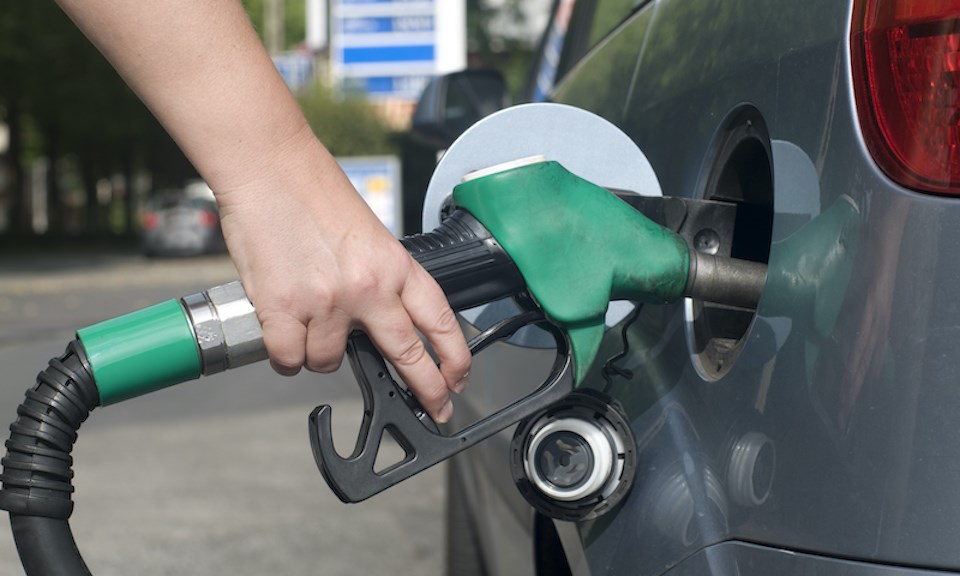Gasoline prices continued to fall across much of British Columbia going into the last travel weekend of the summer.
In Metro Vancouver, gas stations in Burnaby and Richmond saw a litre of gas drop to 182.9 at some stations, according to the website .
The gasoline price prediction website, , forecast average prices in Metro Â鶹´«Ã½Ó³»to drop again Friday, Sept. 2.
That may be good news for the bank account in the short term. But the price drop also signals a looming economic downturn, says University of British Columbia energy economist Werner Antweiler.
“There's clearly a sign that we are not looking at an economic boom anymore,” he said. “We may be looking even at a recession.”
Global fuel prices spiked across the world following the Russian invasion of Ukraine in late February, adding to record inflation rates not seen in decades.
Raise the cost of energy and you raise the cost of almost everything.
Take food in the grocery store. The trip from a farm to your refrigerator requires an often vast network of ships and trucks — almost all of which need gasoline, diesel or oil to move.
In June, the average price for a litre of gasoline in Â鶹´«Ã½Ó³»topped out at over 225.4, according to Statistics Canada. That month, inflation soared to 8.1 per cent.
EV sales growing slower than expected
As gas prices climbed earlier this year, sales of new electric vehicles — while still growing — have been limited by a global demand shortage.
In the first quarter of 2022, zero-emission vehicles (mostly electric) made up 17 per cent of all new vehicle sales in B.C., making it a per capita North American leader.
But by the end of the second quarter, the growth in electric vehicle sales levelled off, accounting for 16.4 per cent of market share in the first half of 2022, according to a recent S&P Global Mobility market .
The trend toward softer than expected EV sales extends across Canada and into the .
Meanwhile, a Glacier Media analysis showed a huge spike in new vehicle registrations in 2021 threatened to wipe out many of the gains made in moving people to public and active transportation.
Because people who buy a car usually hang on to it for several years, the emissions from those new car purchases are expected to be locked in for at least a decade.
The dipping cost of gas could influence B.C. drivers’ short-term buying habits.
Antweiler says he wouldn’t be surprised if an increasing number of car buyers look for a middle ground: plug-in hybrid vehicles that offer the flexibility of gas engines but the price savings of short trips on a battery.
In B.C., the electricity used to drive a kilometre costs about a quarter the price to do it with gas, estimates the economist.
“Electrification is coming one way or the other because electricity is much cheaper than gasoline,” he said.
Not there yet
In recent weeks, the average cost of a litre of gas in Metro Â鶹´«Ã½Ó³»has hovered below $2. Elsewhere in the province, the price of gas remains significantly lower.
In Kelowna, prices hovered at 173.9 Thursday morning, and on Â鶹´«Ã½Ó³»Island, a gas station in Langford saw prices drop to 179.9.
Drivers in Salmon Arm found some of the cheapest gas in the province going into the long weekend, with the price for a litre of gas hitting 167.9, according to GasBuddy.
Antweiler says the fall in gas prices is partly due to markets readjusting to the reality of the war in Ukraine. The cost of crude oil has also dropped due to signs Iran could soon start to add more supply to the world market, said the economist.
That all could be good news for inflation rates, which had already slightly cooled to 7.6 per cent in July after the Bank of Canada raised interest rates — part of a global push from central banks to tame rising prices.
As the summer driving season comes to a close, fuel costs, and the inflation it helps to drive, are dipping.
“That is not to say that you cannot see high prices again,” warned Antweiler.
“I think there is a sense that as European sanctions start binding at the end of the year, we could see another spike in oil prices.”



